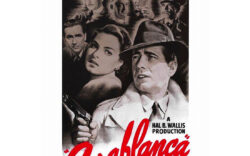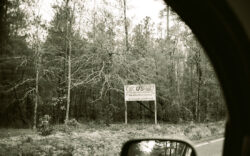
“They’re going to put Martin Luther King on a postage stamp, so everybody in the country will have to lick his ass.”
That crude jibe summed up my uncle’s attitude toward Dr. King’s efforts to change his world. My uncle lived in a world where even well-meaning people were puzzled by Dr. King’s urgency. Weren’t Negroes happy with the way things were? We didn’t hear any complaints, even if you asked one. What was the matter?
Our county’s plantations had produced a lot of cotton, cultivated by a lot of slaves before the Civil War. When that war freed those slaves, another war began—to deny those black Africans brought and kept here by force any entry into the world run by my uncle’s forebears. It was a desperate struggle on both sides. The victorious American government promised the slaves freedom. The defeated plantation owners and the society they controlled knew no other means of survival than total domination of the labor they required for their cotton. Their economy was wrecked, and their only chance to put it back together, as they saw it, was to prevent their slaves from gaining economic independence.
Independence meant property—the ownership of land and labor—secured by contract. The freedmen refused to return to the old system of working for the master. They fought back against the night-riding former Confederate officers determined to terrorize them into submission, and they did not give in.
When force of arms failed, the owners turned to the law and used it as a new weapon which effectively denied the freedmen the right to enter into contracts. They could not own the land. They could not bargain for their wages or be assured that they would be paid for their labor. They were back in slavery, living on the master’s land in a shack owned by him for a share of the crop they grew for him that they spent in his store. They couldn’t attend his schools or his churches, and if they came to his home, they came to the back door.
That’s the world my uncle inherited, though by his time and mine, black people could own property, what little they could get, and they had their own schools and churches and their parts of town, where some of them even owned businesses. Everybody was happy with this social and economic arrangement, so what was King’s problem?
That question never really got answered. The wider world looked in disgust at our way of life and finally agreed with Dr. King that it was wrong, and it did change. By force of law, the schools were integrated, and hotels, restaurants, employment—churches not so much.
A lot of people in our world accommodated themselves to the new civic reality, which hit a lot closer to home than it did in cities. People go to school together and play on the same teams. They work together; they get past the fear and distrust of the other. And a lot of people never made these accommodations. They live in the new world, but they do not accept it. They follow whatever politicians and preachers assure them that the old way was better and can be preserved and brought back—just vote for me, believe in me.
So, that’s really where we are now. Dr. King risked his life to make us see that hatred is wrong. Hatred killed him, but not before he won the fight to make the world understand that it is wrong to deny freedom to citizens of a nation that espouses liberty. Hatred did not go away, and it is now being used as always by politicians and preachers to justify the dismantling of Dr. King’s dream and to promise that we can go back to the old way, that the other—in skin color or religion or sexuality or immigration status—can be controlled, can be denied the promise to live freely in the land of freedom.
So, a Black Belt white boy has to acknowledge that Dr. King’s dream still summons us through all the hatred that roils our world.
“I have a dream that one day on the red hills of Georgia sons of former slaves and the sons of former slave-owners will be able to sit down together at the table of brotherhood.”
There’s still room at the table.
Like what you just read? Support Flagpole by making a donation today. Every dollar you give helps fund our ongoing mission to provide Athens with quality, independent journalism.









